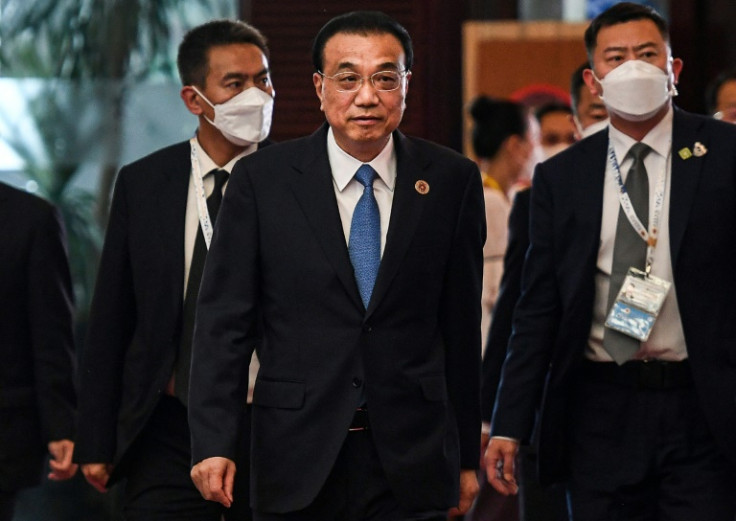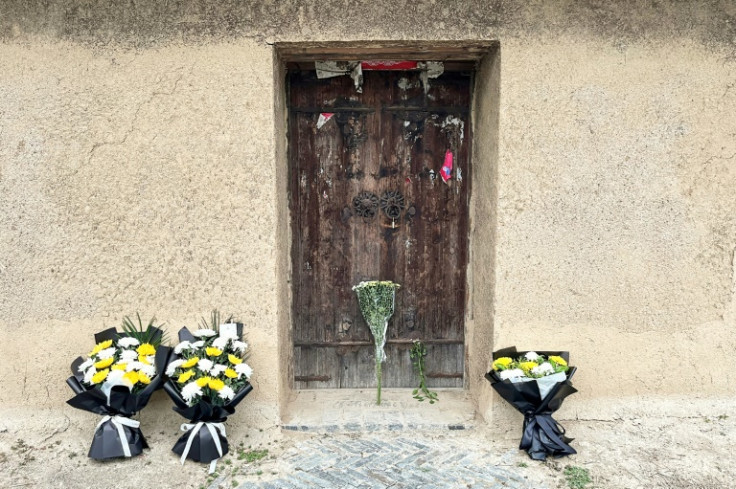Former Chinese Premier Li Keqiang Dies At 68

Former Chinese premier Li Keqiang, a reform-minded bureaucrat once tipped as the country's future leader only to be eclipsed by President Xi Jinping, died Friday. He was 68.
He had a heart attack on Thursday and passed away in Shanghai just after midnight, state-run news agency Xinhua said.
China's foreign ministry said it "deeply" mourned Li's "tragic passing".
"An obituary will be published soon," ministry spokesperson Mao Ning said.
A career bureaucrat who spoke fluent English, Li voiced support for economic reforms during his time in office.
During his 10-year tenure as premier under Xi, he cultivated an image as a more modern official compared to his stiffer colleagues.
The son of a minor party official in eastern China's Anhui province, Li was sent to the countryside to work as a labourer during the tumultuous Cultural Revolution of 1966 to 1976.
He went on to study law at Peking University, where classmates say he embraced Western liberalism.
But he became more orthodox after joining the ranks of officialdom in the mid-1980s, working as a bureaucrat while his former classmates protested in 1989.
Li rose to become the ruling Communist Party's top official in Henan province, and in Liaoning in the northeast -- tenures marked by both economic growth and a health scandal.
Appointed premier in 2013, his attempts at tackling China's deep economic challenges were curtailed by the overwhelming authority of Xi, with whom he was once seen as a rival for the country's leadership.
Praised for helping to steer the country through the global financial crisis relatively unscathed, his tenure saw a shift from the more consensus-based rule associated with former leaders to the concentrated power of Xi.
"People always debated whether (China's) institutions would... determine the outcomes, as opposed to just raw power," Victor Shih, an expert on China's elite politics at the University of California San Diego, told AFP.
"Recent events show that raw power still matters more."
"It's very unfortunate that he didn't have a protege to carry on his policies," City University of Hong Kong's Wang Jiangyu said.
Li's tenure also saw China's economy begin to slow from the dizzying heights experienced in the 1990s and 2000s.
"He always struck me as very committed to China's development, intellectually curious, with a highly sophisticated understanding of the Chinese economy," Bert Hofman, director of the East Asian Institute at the National University of Singapore, told AFP.
"Events derailed some of his agenda in the past 10 years, but his thinking is still very much relevant today."
Former Peking University schoolmate Guoguang Wu, now a senior research scholar at Stanford, told AFP he didn't believe Li "has left a political legacy".
"History will soon forget him," he said.
Another former schoolmate was more charitable, saying Li's life and career were a testament to the success of the reform agenda he espoused during his life.
"Without reform and opening up... he and I still might have been farming in the countryside of Anhui," lawyer Tao Jingzhou said.
In the remote village of Jiuzi in Dingyuan county on Friday afternoon, flowers were laid against the mud and thatch walls of Li's childhood home -- a far cry from the upper echelons of Beijing to which he ascended.
A small group of people gathered, some laying bouquets of yellow and white chrysanthemums -- a Chinese flower of mourning.
One woman told AFP she felt "very sad" about his death.
"My mum is related to him," she said.
A visitor said he "felt very sad because Li Keqiang was an amiable premier and was loved by people all over the country".
"I happened to be here in Dingyuan, his home county, and came here to mourn our beloved premier."
Another man said: "He has done a lot of good things for the people, and the country. We people are very grateful to him."
Users of social media site Weibo flooded Xinhua's announcement with brief messages of condolence, though many comments could not be displayed -- a signal that discussion of the topic was being censored.
When Li left office, the country was experiencing some of its lowest growth in decades, battered by a Covid-induced slowdown and a crisis in the housing market.
The appointment of Xi ally Li Qiang as his successor this year was seen as a sign that his reformist agenda had fallen by the wayside as Beijing tightened its grip over the economy.
But in his final speech as premier earlier this year, Li struck a bullish tone, saying China's economy was "staging a steady recovery and demonstrating vast potential and momentum for further growth".

© Copyright AFP 2025. All rights reserved.





















